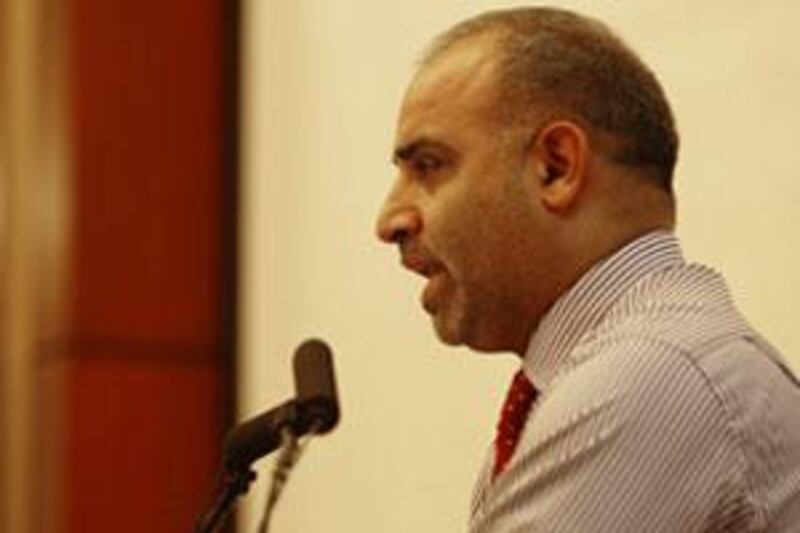ABU DHABI // Middle East states need to collaborate to preserve stability in the region following the elections in Iran, according to a leading expert on the country's affairs. Speaking at a lecture at the Emirates Centre for Strategic Studies and Research in Abu Dhabi on Wednesday evening, Dr Mahjoob Zweiri discussed the 10th Iranian elections and its effect on the region. "States are no longer confined to their borders these days, therefore the Iranian elections do have an impact on its neighbours," said Dr Zweiri, who is head of the Iranian Studies Unit at the Centre for Strategic Studies at the University of Jordan. "For the GCC, a change in the Iranian model was seen positively, but there is a serious concern that a status of instability may emerge in Iran." "Does the region need to see more failing, fragile states like Iraq and Afghanistan?" he asked. "The options of the world are limited, and they need to collaborate to preserve stability." Dr Zweiri said he believed as a result of his research, even without direct evidence, that the majority of the international community wanted Mr Ahmadinejad replaced with a reformist to create an environment to ease tensions. Yet, with Mr Ahmadinejad back in power for a second and final term - which, according to Dr Zweiri, is a result of the conviction by Iranians that the president needs more than one term to execute his policies - the Middle East needs to think carefully about its approach towards Iran during the next four years. Jordan and Egypt, for example, should have little cause for concern because of their geography in relation to Iran, yet with Hamas and Hizbollah (who are both known to have strong connections with Iran) still being contentious issues for both states, the outcome of the elections and future Iranian policies will have an indirect effect on them. "Will Iran maintain the same policies after these elections? How will the president deal with these issues?" he asked. It was important for regional politics, he said, to ensure that the internal issues that had erupted as a consequence of the elections did not continue to create internal instability. "If the division in Iran continues," he said, "what does this mean for its role on Middle Eastern policies, such as Iraq and Afghanistan?" Dr Zweiri said that despite the controversy over the election, the fate of Iran was not necessarily in the hands of President Ahmadinejad. "Some decisions are made regardless of who the president is," he said. "Whether it is Ahmadinejad or Mousavi, issues such as national security and sovereignty are not impacted by the president." nsamaha@thenational.ae
GCC urged to beware of Iran instability
Middle East states need to collaborate to preserve stability in the region following the elections in Iran, according to a leading expert on the country's affairs.

Editor's picks
More from the national





